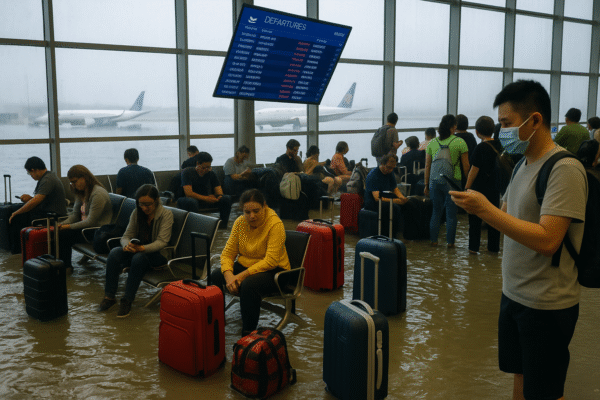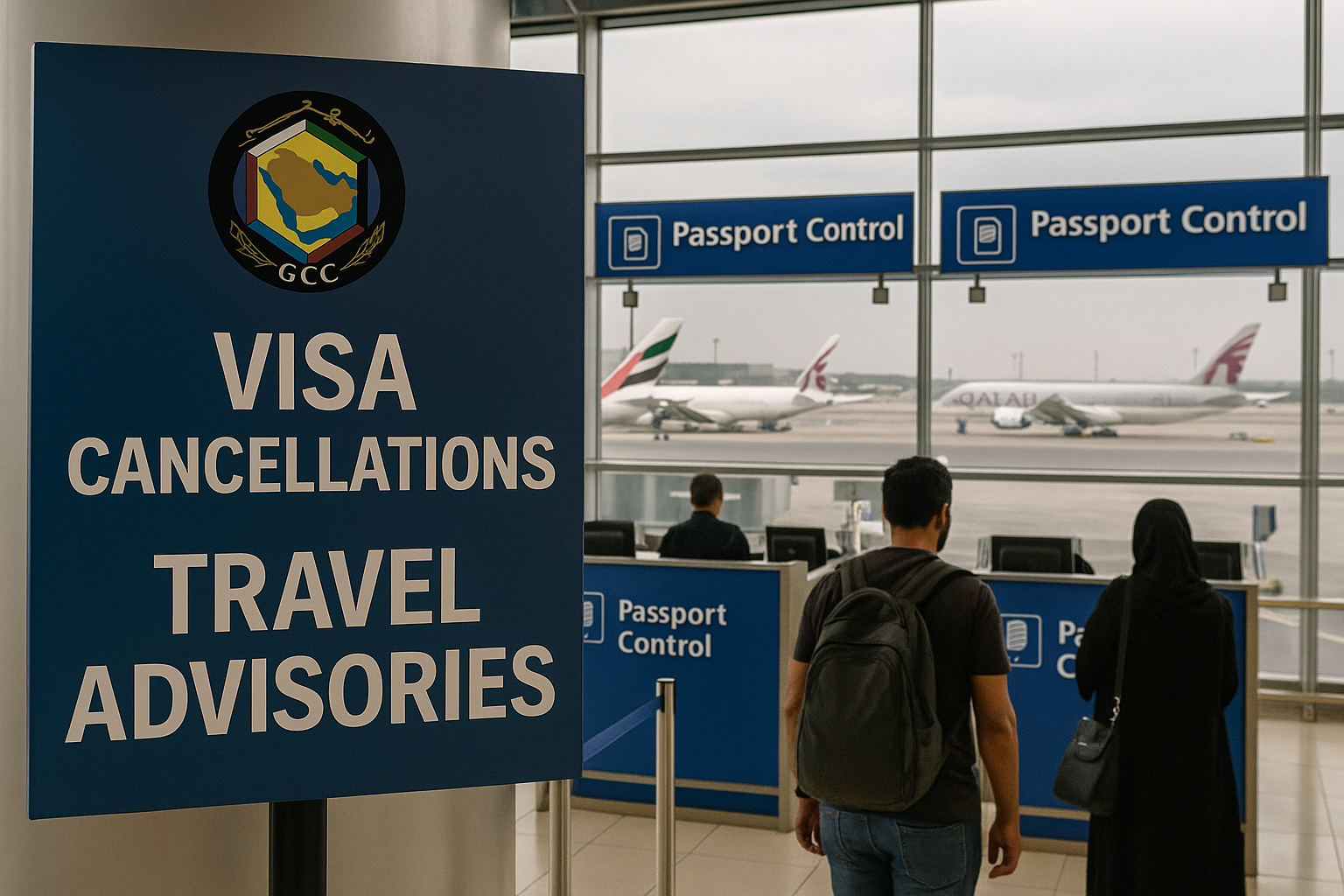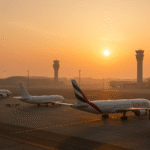June 19, 2025 | Riyadh, Doha, Abu Dhabi – As tensions in the Middle East intensify, Gulf Cooperation Council (GCC) nations are being forced to navigate a complex and volatile travel landscape. In recent weeks, countries including Saudi Arabia, Qatar, Kuwait, Bahrain, and Oman have imposed a wave of visa cancellations, heightened travel advisories, and flight suspensions—upending the region’s tourism momentum and disrupting the plans of thousands of international travelers.
With Israel-Iran hostilities at the heart of the crisis, the resulting geopolitical instability has led to cascading effects on the travel industry. Visa suspensions, delayed air traffic, rerouted flights, and stranded tourists are becoming common across the region, threatening to reverse gains made in Gulf tourism post-pandemic.
Saudi Arabia’s Visa Crackdown Raises Eyebrows
Saudi Arabia has taken the most stringent measures in response to the unfolding crisis. The Kingdom’s General Directorate of Passports (Jawazat) has reportedly suspended exit and re-entry visas for citizens of multiple countries, including India, Pakistan, Ethiopia, Iraq, Sudan, and Yemen. These cancellations, described as temporary but indefinite, have caused confusion among expatriates and global travelers alike.
Industries reliant on foreign labor have already begun reporting operational disruptions, with businesses forced to recalibrate amid staffing uncertainties. Meanwhile, foreign tourists—especially those traveling for religious pilgrimages such as Hajj and Umrah—face cancellations and sudden changes to their itineraries. The Saudi Ministry of Hajj and Umrah has issued new advisories, urging international pilgrims to verify visa validity and arrival protocols before making travel arrangements.
Qatar and Kuwait: Diplomatic Fallout Impacts Tourism
Qatar, despite positioning itself as a luxury tourism hotspot following the success of the FIFA World Cup 2022, is facing headwinds. Diplomatic strain with certain nations—particularly those involved in Middle East conflicts—has led to selective visa suspensions. Travelers from countries like Algeria, Nigeria, and Bangladesh have reported delays or denials in processing tourist visas.
Kuwait and Bahrain have adopted a precautionary stance, implementing tighter screening measures at entry points and halting visa issuance for nationals of conflict-afflicted countries. While these policies are described as security-focused, critics argue they contribute to regional travel volatility and uncertainty.
UAE Sets Itself Apart with Humanitarian Gesture
In contrast, the United Arab Emirates has chosen a more diplomatic and humanitarian approach. Amid rising tensions and disrupted travel for Iranian nationals, the UAE government recently waived overstay fines for Iranians stranded due to suspended flights and closed airspace.
According to The Times of India and local UAE authorities, this decision reflects the Emirates’ commitment to maintaining humanitarian principles while balancing regional security dynamics. The move has been widely praised, offering some relief to Iranian nationals affected by the ongoing crisis and positioning the UAE as a more stable entry point for travelers in the Gulf.
Air Travel Chaos: Flight Rerouting and Cancellations Widespread
Flight disruptions are compounding the travel crisis. Major GCC airlines—including Emirates, Qatar Airways, Etihad Airways, and Flydubai—have suspended flights to and from Israel, Iran, Syria, and Iraq due to widespread airspace closures. Some have rerouted flights via Pakistani airspace, resulting in longer travel durations and increased fuel costs.
Airlines face the dual challenge of ensuring passenger safety while contending with mounting logistical expenses. The rerouting of long-haul flights to Europe and Asia has caused delays of up to five hours in some cases, triggering passenger dissatisfaction and operational strain.
While Pakistan’s airspace has served as a temporary corridor, aviation experts caution that it cannot support the full burden of redirected Middle Eastern traffic indefinitely.
Visa Uncertainty Disrupts Tourism and Economic Flow
The GCC nations have long relied on tourism as a pillar of economic diversification, especially amid efforts to reduce reliance on oil revenues. However, the sudden shift in visa policies has disrupted this growth trajectory. Key destinations like Dubai, Abu Dhabi, Doha, and Riyadh are witnessing a slowdown in bookings and cancellations from travelers uncertain about evolving immigration protocols.
In Saudi Arabia, the impact is most visible in the religious tourism sector. Hajj and Umrah-related travel has been curtailed for pilgrims from affected countries. The Ministry of Hajj and Umrah has issued fresh guidance, recommending travelers defer trips unless their visa status is confirmed.
Qatar’s hospitality sector, buoyed by recent investments and post-World Cup tourism campaigns, is also under pressure. Hotels and tour operators are experiencing a decline in occupancy and bookings from African and South Asian markets—once seen as growth segments.
Toward Regional Travel Reforms?
Amid the turbulence, discussions have resurfaced around the unified GCC tourist visa initiative, which would allow travelers to move freely between member states on a single permit. Originally slated for rollout in 2024, the project has faced delays. Now, officials suggest it may offer a path toward recovery—streamlining travel within the Gulf while reinforcing border security.
However, the feasibility of such a system depends heavily on diplomatic consensus—something that remains elusive in a region grappling with complex military and ideological rifts.
Conclusion: Navigating a Turbulent Tourism Outlook
The Middle East’s travel landscape in 2025 reflects the wider geopolitical fault lines emerging from regional conflict. For now, visa cancellations, airspace closures, and airline suspensions remain key challenges for travelers and tourism stakeholders.
While nations like the UAE pursue humanitarian responses, others, like Saudi Arabia and Qatar, are opting for stricter controls. These divergent approaches signal not only security priorities but also the complex interplay between diplomacy, migration policy, and tourism economics.
Travelers planning to visit the GCC are advised to monitor official government advisories, consult airline partners, and remain flexible as the situation continues to evolve.
For more travel news like this, keep reading Global Travel Wire

















